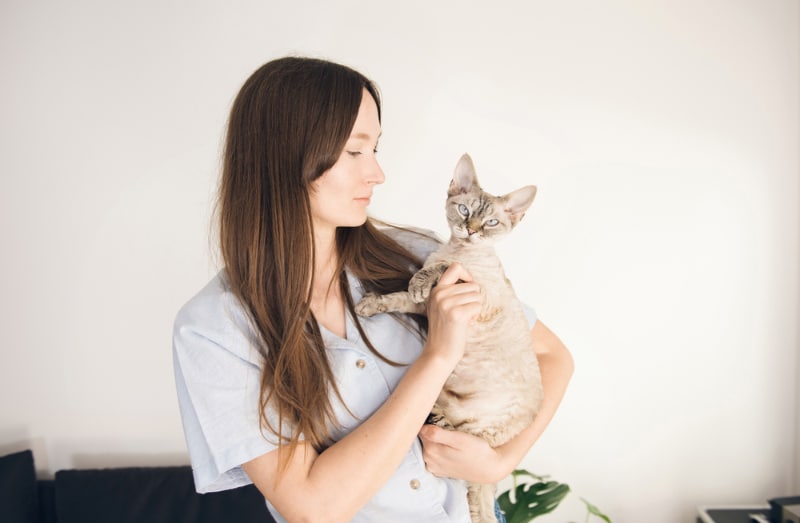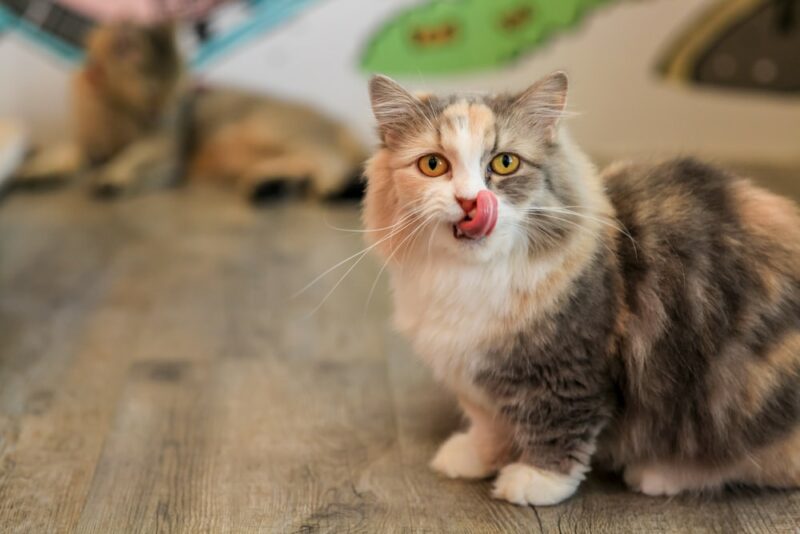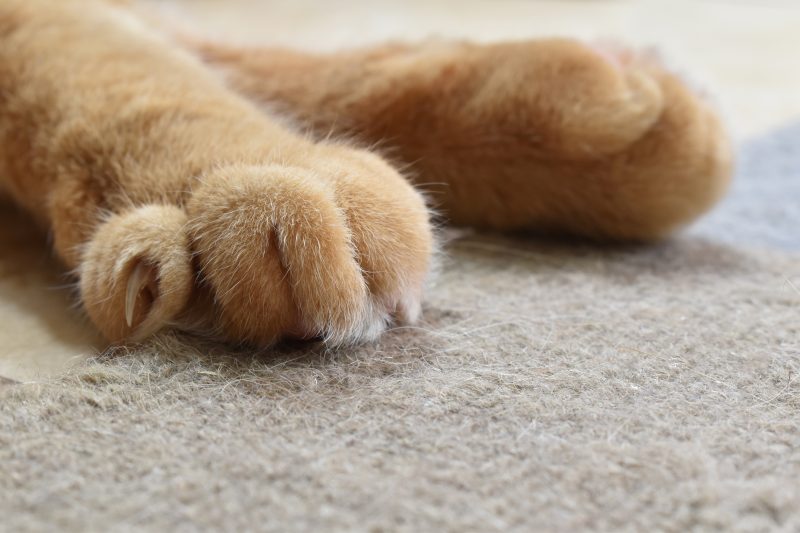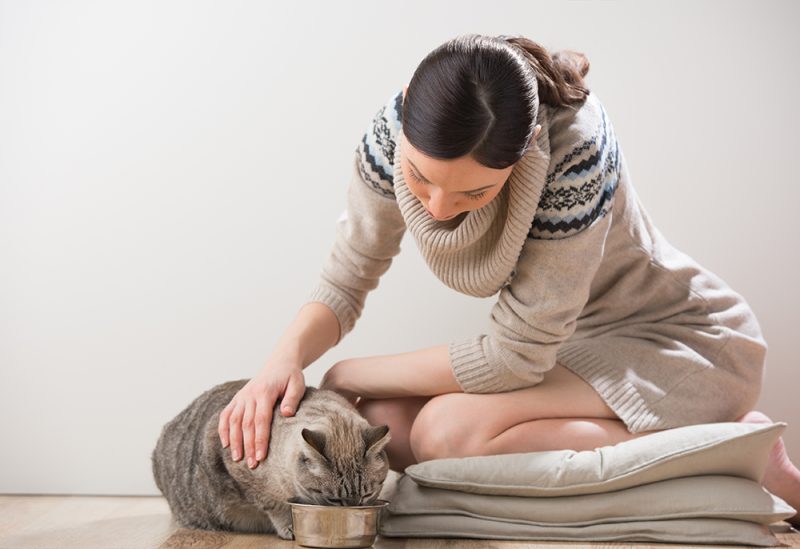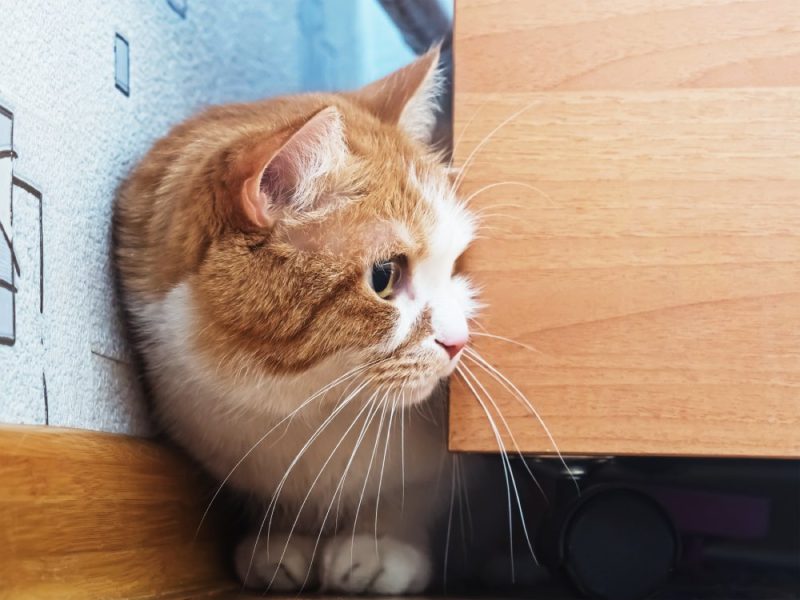If you’re planning on heading somewhere fun for a vacation or need to be out of town for a few days because of work, you may need a reliable cat sitter to take care of your buddy while you’re gone. Finding a cat sitter requires a bit of planning, but once you’ve found the one you’re comfortable with, you’ll have a go-to person your cat already knows, which can make things easier in the future.
A few steps are involved in finding a cat sitter, so make sure to allow plenty of time for the search. Keep reading for six tips for finding a cat sitter.

The 6 Tips for Finding a Cat Sitter
1. Ask for Recommendations
Asking people you know for recommendations is an easy and reliable way to find a pet sitter. Neighbors can provide information about sitters who work in the area. Consider reaching out to people you know who have professional dog walkers come by to take care of their pups, as some dog walkers also provide pet-sitting services. A veterinarian can also provide suggestions.

2. Search Online
There are several online resources to help pet parents find local sitters. Simply searching for businesses that offer pet-sitting services in your area is a solid way to get started. Consider checking out listings provided by professional pet-sitting organizations, such as the National Association of Professional Pet Sitters (NAPPS).
Reading a few reviews can provide helpful information you can use to focus your search. Many pet sitters have websites that provide helpful information, such as how long they’ve been in business and their working philosophy.
3. Clarify Your Cat’s Needs
Before reaching out to potential pet sitters, come up with a list of your cat’s needs and quirks so you can provide a reasonably accurate picture of what caring for them will likely involve.
Think about your cat’s medical, environmental, and dietary needs. Write down if they require medication or special food or freak out if their litter box isn’t cleaned by precisely 10 a.m. every day. Try to come up with an accurate description of your pet and the type of care they require. Having a clear idea of what you’re looking for in a cat sitter ahead of time can make the vetting process much smoother.

4. Narrow Things Down
Do you want someone who is bonded and insured? How much experience would you like the sitter to have? Is pet CPR certification an absolute requirement? After you’ve come up with an idea of what you’re looking for, review the websites of candidates who appear to fit your needs.
Make sure to reach out to a few sitters recommended by friends, family members, neighbors, or colleagues since many fantastic pet sitters rely on word of mouth to find new clients and may not have their websites set up.
5. Schedule a Moving-Forward Call
Set up a time for a quick chat with prospective sitters, so you can ask questions you may have, discuss availability, and generally get a feel for whether or not the pet sitter may be a good fit. Be clear about your cat’s personality and needs, as well as what services you’re interested in.
It’s a great time to discuss details, such as whether or not you’d like to get daily pictures or video chat with your cat a few times while you’re away. Don’t forget to discuss costs to avoid surprises down the line.

6. Set Up a Meeting
Have the person you’re considering come by to get to know your pet. It’s an opportunity to observe how they interact with your cat and whether your pet seems comfortable with them. Having the sitter dole out a few treats may encourage your cat to respond positively the next time they come around.
Make sure to discuss any special care your cat needs and show the sitter where to find their food, treats, carrier, and toys. If your cat takes medication, make sure the sitter knows what to do, and don’t forget to provide written instructions to be on the safe side.
Discuss any health conditions your cat has, and ensure the sitter knows about any specific changes in your cat’s behavior to look out for. Let them know who your cat’s veterinarian is and how to contact them.
Remember you can always have an online vet on your contacts for any emergency.
If you need to speak with a vet but can't get to one, head over to PangoVet. It's an online service where you can talk to a vet online and get the advice you need for your pet — all at an affordable price!


FAQ
Do Cats Notice When You’re Gone?
Cats bond deeply with their favorite people, and many dislike being alone. It’s common for cats to show their displeasure when their favorite people return, either by ignoring them completely or being a bit standoffish.
What Preparations Should I Make Before Leaving My Cat Alone?
Before leaving your cat, ensure your home is cat-proofed. Put personal care products and medication away and make sure there aren’t long dangling cords or strings left out.
Consider unplugging electrical cords to reduce the chance of your cat getting hurt if they get bored and decide to take a bite of one. It’s also a good idea to put your plants out of reach to prevent snacking incidents. Leaving something that smells like you behind can also help your cat feel comfortable while you’re away.

What Are the Benefits Of Leaving Cats at Home With a Pet Sitter?
Cats are territorial and easily stressed by environmental changes. They often become stressed when their owners go on vacation, and many find it particularly difficult to adjust to routine alterations while at the same time having to deal with less entertainment, interaction, and attention.
When cats stay home, they’re surrounded by familiar smells and their favorite places and toys, so they don’t have to deal with the added stress of being removed from where they feel most comfortable. Staying at home may not be the best option for cats with medical issues or those who struggle when left alone.

Conclusion
Cats become quite attached to their humans, and many don’t enjoy being left alone when their owners go on vacation or have to spend a few days on the road because of work. While cats have a reputation for being able to entertain themselves, most do best when they get a bit of love and playtime to keep them active and mentally engaged when left alone, which is where great cat sitters come in!
To find someone your cat feels comfortable with, allow plenty of time for the search, get started early, and ask around for recommendations. Have a few questions ready to make the getting-to-know-you process easier, and have a meet and greet beforehand to ensure the sitter is right for your cat.
Featured Image Credit: Veera, Shutterstock
